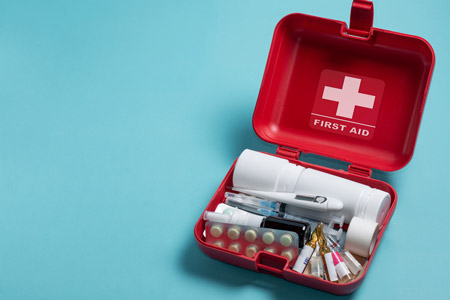

.jpg)
Ensuring Continuity of Care Through Independent Pharmacies
For patients today, it’s easy to feel like just a number in a system when it comes to their healthcare experience. The days of small-town doctors offering hyper-personalized care may be gone — but independent pharmacies can help reshape modern healthcare to be more patient-centered.
Independent and community pharmacies are uniquely positioned to help ensure improved continuity and quality of care for their patients. Unlike national chains, independent pharmacies often provide a more personalized and holistic approach to healthcare, fostering stronger patient-pharmacist relationships that are pivotal for effective long-term care.
Let’s dive into the different ways pharmacies can ensure improved continuity of care for their patient communities.
One on One Health Consultations
One of the key advantages of independent and community pharmacies over other healthcare centers is their ability to offer customized patient care. Pharmacists in these settings typically have more time to engage with patients, offering personalized consultations, medication management services, and tailored health advice.
This individualized attention helps in identifying potential drug interactions, managing chronic conditions, and ensuring adherence to prescribed therapies. For patients with complex health needs, this level of care is indispensable and it can help patients feel more comfortable with their treatment plan — leading to increased trust in their healthcare team.
Patients benefit from seeing the same pharmacist over time, which builds trust and allows for better monitoring of health conditions. This continuity can lead to improved health outcomes, as pharmacists who are familiar with a patient’s history are better equipped to notice changes or issues that might require medical attention. Pharmacists can then pass this information on to patient’s physicians as needed for the best possible level of care.
Furthering Care In Rural or Underserved Locations
Community and local pharmacies often serve as a critical healthcare resource in underserved and rural communities. In areas where access to medical services is limited, these pharmacies fill a significant gap by providing essential healthcare services and medications.
They are often more flexible in accommodating specific patient needs, such as compounding medications or offering specialized medical equipment, which larger chain pharmacies might not provide.
Increased Collaboration with Doctors
Independently operated pharmacies have much more flexibility for collaboration than their chain counterparts. This means that independent pharmacies can more frequently collaborate with local healthcare providers, which creates a cohesive network of care for patients.
This collaboration ensures that pharmacists are well-informed about the latest treatment protocols and can provide seamless care in coordination with doctors and other healthcare professionals. In turn, pharmacists can also report back to doctors about what treatments are working and if there are any new medications doctors should be aware of.
Independent pharmacies play an indispensable role in maintaining the continuity of care through personalized attention, serving underserved areas, and fostering collaborative healthcare networks. Their commitment to patient-centered care ensures that individuals receive comprehensive and consistent healthcare support, ultimately leading to better health outcomes.
If you’re interested in learning how you can get more time back in your pharmacy’s day-to-day to dedicate to fostering increased collaborative care, reach out to one of our experts today.


.jpg)
.jpg)
.jpg)


















.jpg)





















.jpg)

















.jpg)


























.jpg)
.jpg)
.jpg)









